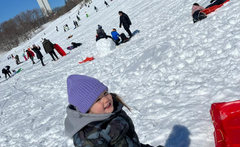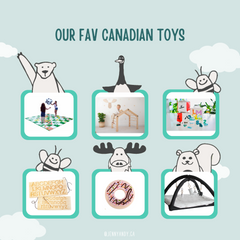
Indigenous peoples—First Nations, Métis, and Inuit peoples—are the original inhabitants of the land of Canadian soil. They have distinct, rich, and diverse cultures, traditions, and history, and their identity, culture, and language is deeply rooted in the land.
But with colonization and white settlement, the lives of Indigenous peoples were changed forever, with impacts still felt today. Colonial practices and policies, such as the Indian Act, pass system, reserves, and Residential Schools, sought to control and assimilate Indigenous peoples. These practices and polices, combined with racism, acts of segregation, loss of land, and unequal access to resources and public services, have had devastating consequences on the health and socio-economic well-being of Indigenous peoples.
The struggle for sovereignty and human rights in Indigenous communities is an ongoing and complex issue that needs to gain recognition from the wider population.
Canadians can do so much more to get educated about the issue of Indigenous rights and learn how they can help. Here are five things to consider doing now as an ally.
1. Learn more about the legacy of Residential Schools as well as Indigenous history.
Much of Indigenous history in Canada is not widely known. It is Canada's "hidden" history.
Indigenous history is an integral part of the history of any nation with a history of colonialism. It’s not a pretty subject, and can be uncomfortable, but it's important to learn about it in order to become a better society, and better people, in the present day.
Under the Indian Act, First Nations people were confined to the reserve through the pass system. Education was segregated with day schools and Indian Residential Schools, along with health care. These rules were enforced by the RCMP.
Residential schools aren’t far in the past; the last one only closed in 1996. Many Survivors are still coping with the trauma of punishment, abuse, coercion, and control. The intergenerational impact is still felt through communities.
The National Centre for Truth and Reconciliation (NCTR) estimates that there are 80,000 Survivors of Residential Schools in Canada today. Canadians need to hear their stories and find ways to ensure our collective future rests on a solid foundation of respect, openness, and trust.
The best way to get an accurate view of indigenous history and issues is through first-hand accounts of actual Indigenous people, tribes, and organizations.
2. Buy and wear an orange shirt from an Indigenous-owned business.
Wearing an orange shirt reminds us of the impact of Residential Schools that is still felt today. Wear an orange shirt in recognition of the harm the Residential School system did to children, as an opportunity to discuss its effects, and to affirm a commitment that every child matters and everyone around us matters.
The significance of the orange shirt references a real orange shirt taken from a Residential School Survivor, Phyllis Webstad. Learn more about Phyllis and the origin of Orange Shirt Day at Orange Shirt Day
Where you can buy an orange shirt:
- Orange Shirt Day
- Dream Catcher Promotions
- Kit and Kaboodle
- Turtle Lodge Trading Post
- South Island Crafts
3. Watch a film to learn more about Indigenous peoples.
Who doesn’t love movies? And there are tons of films to educate us about current events and issues as well as Indigenous-made films. The Indigenous film lens presents us with new and important perspectives for both Indigenous and non-Indigenous people alike.
Be sure to check out:
- This list of films by Indigenous women, compiled by Canadian Women’s Foundation
- These films on Residential Schools, compiled by University of Alberta
- The National Film Board of Canada’s collection of Indigenous-made films
4. Support and follow Indigenous creators, artists, and business owners on social media.
As a small business ourselves, we understand how important and meaningful it is to have wonderful people like you support us, not only through purchasing products, but also by making meaningful connections and showing support through social media.
Here are some Indigenous creators, artists, and business owners to check out and follow on social media:
5. Reflect on Canada's relationship with Indigenous communities by reading the NCTR’s 94 Calls to Action
In 2015, the NCTR published a summary of its final report, Honouring the Truth, Reconciling for the Future. The report includes the 94 Calls to Action, urging all levels of government to work together to change policies and programs in an effort to repair the devastating impacts of Residential Schools and move forward with reconciliation.
Inspired by the stories shared by over 6,000 Survivors, the 94 Calls to Action contains a comprehensive plan for accepting responsibility and seeking forgiveness in a spirit of reconciliation.
Read the 94 Calls to Action here.
6. Have ongoing conversations about non-colonialist culture and history.
As important as it is to educate ourselves and others on the harrowing history of colonialism in Canada and its effects on Indigenous peoples, it’s also important to remember that in focusing the conversation of Indigenous history around colonialism, you participate and maintain a euro-centric worldview.
Instead, learn about the diverse Indigenous culture, tradition, spirituality, and history outside of the colonial narrative. Indigenous people are here, right now. Throughout Canada's history, Indigenous peoples helped shape this land into the country we know today, and continue to do so now. For example, despite being exempt from mandatory military service when that existed, Indigenous peoples have voluntarily enlisted in every conflict Canada has been involved in and continue to do so.
We must disrupt the “people of the past” narrative by actively participating in positive change as a part of your conversation. Consider:
- Donating money to and show support for Indigenous organizations
- Attending events that feature and/or give back to the Indigenous community
- Supporting Indigenous artists and Indigenous-owned businesses
- Signing petitions for current events.
Finally, one of the main things you can do is keep the conversation active. Just like with any history lesson, you don't just talk about it once and drop it afterward—the conversation and learning is ongoing with new lessons and topics of discussion.
After all, indigenous culture is so rich and diverse—impossible to tackle it all in one day.
Sources:
-
Government of Canada (214). Indigenous contributions during the First World War.
- Motherly (2021). How to talk to your kids about Indigenous history and issues.
- National Centre for Truth and Reconciliation. Residential School History.
- Orange Shirt Day. Phyllis (Jack) Webstad's story in her own words.
- Reconciliation Canada. History and Background.



